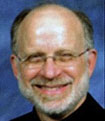Poetry is essential to the art and craft of preaching.
I’m not talking about crafting a sermon with three points and a poem. I’m not talking about goal, malady, means, poem; or problem, power, point, poem. I’m not talking about ending a sermon with a cute little rhyme, or necessarily incorporating poems into our preaching. Although I do believe there are classic and modern poems that are ripe for the picking when appropriate and driven by the Gospel.
What I am talking about is cultivating the heart and art of the poet.
We are called to preach. We are called to speak. We are called to word the living Word. That takes the keen sense of an attentive poet. That takes mindfulness and noticing nuance. The practiced poet is able to move from text to subtext. The poet notices the spaces and the silences and recognizes that silences and spaces are as important as words and places.
John Keating, literature teacher at a New England prep school in the Dead Poet Society, tells his students:
“We don’t read and write poetry because it’s cute. We read and write poetry because we are members of the human race. And the human race is filled with passion. And medicine, law, business, engineering, these are noble pursuits and necessary to sustain life. But poetry, beauty, romance, love, these are what we stay alive for.”
The preacher’s calling is to bring people to the passion of the Divine and then let the Divine do its work on us all. There is a tendency to want to back away from the Divine passion and take a more comfortable seat in the rear row. Yet, each week we are called to enter into a text and to be tuned into the subtext both of life and of the lectionary and that takes the heart and art of a poet.
One cultivates the heart of a poet by reading poetry. You can hear poetry read to you each day by listening to Garrison Keillor’s The Writers Almanac daily on NPR. His book Good Poems is an outstanding anthology. Listening and reading good poetry exercises the heart of a poet. I recommend reading a short anthology of Gerard Manley Hopkins, or Wallace Stevens. The Shadow of Sirius by W. S. Merwin, our current US Poet Laureate, is outstanding.
The Poetry Foundation website is excellent, too. Poetry is oral communication and not meant to be silently read — but read aloud. At this site you can listen to authors read their poetry.
Writing poetry is also a way to cultivate the heart and the art of the preacher-poet. Even if you sense that the poetry that you write is not worthy of publication — the exercise itself brings divine words to light and raises the Spirit within each of us.
The Psalms, our liturgy, our hymns and songs are poetic attempts at wording the living Word. One way to be in tune with Divine Grace is to cultivate the heart and art of the poet.

